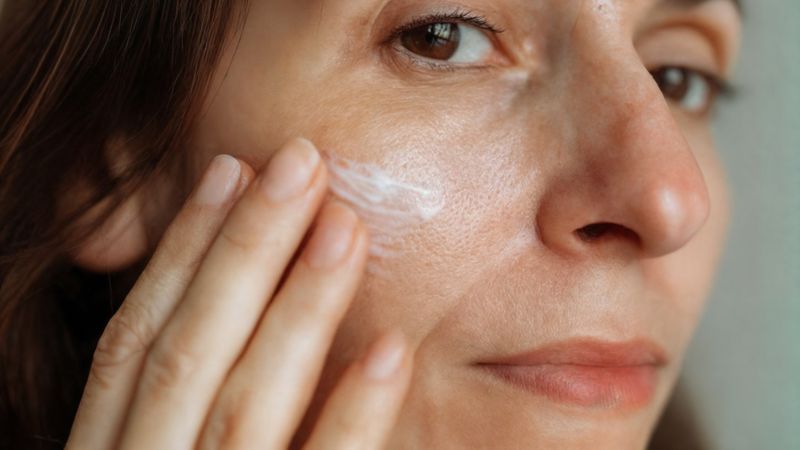Founder interview: Max Marchione, co-founder and CEO of Superpower

In our Founder Interview series, we showcase the brightest minds in preventive health, wellness, and longevity. In Episode 1, we introduce Max Marchione, Co-Founder and CEO of Superpower.
Tell us a little about yourself and your current venture
I'm Max, co-founder of Superpower.com, a new healthcare system to prevent disease and enhance human capabilities. Previously, I built Next Chapter to help shape the trajectory of young talent and Ultraviolet Ventures to invest in companies that ‘nobody else sees’. I dropped out of Australia’s top law school, despite ranking 1st, to study mathematics and statistics while working 10 jobs on the side. Today, I live in San Francisco and spend most of my time thinking about healthcare 5 years from now, resource allocation in light of AI, storytelling, culture, speed, and how to create an A+ team & culture. I invest from pre-idea via Fractal Capital. You can learn more about me at maxmarchione.com
How do you balance the demands of running a business while maintaining your own health and longevity?
I believe that health is a tool for human performance. You can read my protocol on my website. I've spent lots of time and money optimizing this, so hopefully you don't have to.
Do you have a personal health goal? What is it?
Reduce my biological age to under 24. Maintain <12% bf year round. Gut health top 5th percentile. Toxin exposures, bottom 5th percentile.
Before launching your venture, can you walk us through the “aha” moment that inspired the creation of your product/service?
From a young age, I struggled with health issues. It would take me hours to fall asleep every night, and despite seeing over 20 doctors, undergoing surgery, and being prescribed lifelong medication, no one could work out what was going on.
So, I explored the world of health myself, reading papers and experimenting with tools like the Gen 1 Oura Ring in 2016 and continuous glucose monitors in 2017—at a time when using these devices was considered weird.
I realized that healthcare should be used not just for treating illness, but for maximizing human potential. I finally found a doctor who got to the root of my health problems, and in doing so, had an important realization: there’s a huge gap between the cutting-edge healthcare available to the elite, like Jeff Bezos, and what the average person receives.
Since then, I’ve believed that everyone, not just a privileged few, should have access to this kind of care, and that’s what we’re building at Superpower.
What sets your venture apart in the crowded health and wellness industry?
I'd challenge the premise that the industry is crowded. I think it's just getting started and there is so much whitespace.
Fundamentally, no one has been able to do what Superpower is doing, which is taking high-end concierge medicine that previously cost $10k-$100k, and making that accessible for a far lower amount.
No one besides Superpower has aggregated dozens of diagnostics and therapeutics under one roof, and built the AI systems that connect the dots across all of someone's data.
What’s the most surprising lesson you’ve learned from your customers or users?
We need to obsessively simplify the value proposition. What feels simple to us can still be complex and obscure to users.
What is the most groundbreaking or unexpected finding in the field of longevity research that you’ve come across recently, and why do you find it so compelling?
My friend has built a ring to continuously monitor hormones, non-invasively. No one knows about this company yet, but it will be huge.
In your opinion, which emerging longevity trend or product will have the most transformative impact on our health over the next five years, and why?
Gene therapy, and the ability to genetically drive outcomes in a reasonably safe manner.
One thing you wish more people knew about health and longevity?
That supplements are not the answer.
What is the biggest longevity myth you’d like to debunk?
That longevity is a noisy and saturated industry. It's not.
If you could recommend only one supplement for a longer, healthier life, which would it be, and what makes it indispensable?
I'm going to cheat and say this multi-vitamin because it solves for methylation (b vitamins), mineral depletion, antioxidants, vitamin D/K, etc. I personally use Adapt Naturals.
How old can we potentially become at maximum?
Probably only 170 without changing our physical bodies or uploading our brains.
What resources (books, podcasts, mentors) have been most valuable in your entrepreneurial journey?
Books:
- Dune
- The Fountainhead
- Poor Charlie's Almanac
Visit my website for more.
If there’s one message or insight you’d like readers to take away from your journey, what would it be?
Stop thinking about doing things and just do things. Action produces information.
Author: Karol Domagalski
Family and health first. Big on sports, nutrition, longevity, travel, and all things digital. Founder of New Zapiens, on a mission to help people live their best lives.




